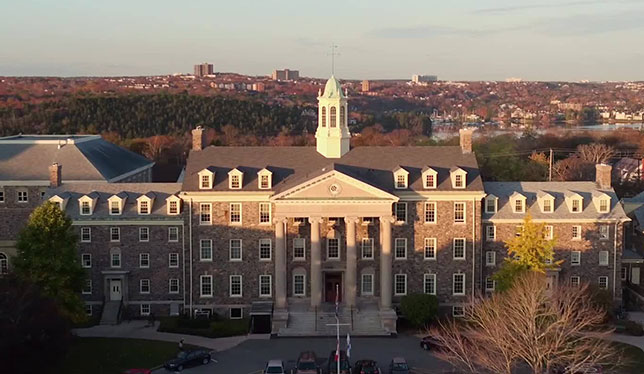University autonomy in Canada: it’s time for a checkup
The decision-making authority of universities appears to be shrinking, and that’s cause for concern.

Canadian universities have traditionally enjoyed high levels of autonomy from governments, relative to their counterparts in other parts of the world. As recently as the 1990s, a couple of studies (Richardson and Fielden, 1997; Anderson and Johnson, 1998) concluded that the level of government intervention in Canadian universities was lowest or amongst the lowest of the many countries studied.
That view was shared by knowledgeable observers here. David Cameron wrote in More than an Academic Question: Universities, Government and Public Policy in Canada (1991):
“Provincial policy has been remarkably respectful of institutional autonomy. Universities have nowhere in Canada become mere agents of provincial governments, and there is no indication that any province seriously intends to have it otherwise.” A quarter century later, is that still true?
A comparative case study of the governance of six major universities in five provinces, involving interviews at the institutional, provincial and national levels conducted between 2012 and 2015, found that the extent of these universities’ autonomy from government varied greatly from province to province (Eastman, Jones et al. and Bégin-Caouette et al., both forthcoming). The very different histories and traditions of the provincial systems continued to inform the universities’ external governance. Nevertheless, all six universities were experiencing increased provincial regulation. A great deal of decision-making authority formerly exercised by university bodies had been assumed by governments. That trend has continued since, with the introduction of additional provincial legislation or regulations on matters such as executive compensation, collective bargaining, procurement, occupational health and safety, and sexualized violence prevention. And, of course, the federal government and its agencies also regulate and shape activities within universities.
The shrinking of the decision-making jurisdiction of universities in Canada in recent years appears to be part of a global phenomenon. Governments that are traditionally thought of as more controlling have been stepping back – giving institutions more autonomy to increase their responsiveness and competitiveness – while those governments seen as historically less interventionist are seeking to influence universities to a greater degree through regulation, incentives and other means (Austin and Jones, 2016). In my opinion, even if recent Canadian experience reflects a pattern of convergence toward a global mean, declining institutional autonomy is cause for concern. Why?
Ultimately, universities’ governing bodies are best equipped to make decisions consistent with the advancement and dissemination of knowledge, and the interests of students, society and the planet. Even in the more immediate term, a number of studies (e.g., Aghion et al., 2010; Altbach and Salmi, eds., 2011) suggest that lack of autonomy negatively affects universities’ performance. That’s why governments in Europe, Japan and other parts of the world are giving more decision-making responsibility and authority to universities. Those governments have concluded that more autonomy will enable their universities to be more competitive, innovative and responsive.
Of course, Canadian governments also recognize the powerful roles that universities play in society and the economy. The federal and provincial governments invest huge sums in university activities and naturally have a keen interest in the outcomes. But they, and we, should be aware of the risk of smothering universities and their capacity to act in a manner that’s optimal for the advancement of their missions.
What are the major implications of these developments for members of university boards, senates and other governing bodies?
- Be sure to govern wisely and well. It’s the quality of your decisions that will maintain public trust in universities, which remains high in Canada (relative to both other types of institutions in this country and to universities in other countries). Maintaining governments’ trust is obviously important as well. It’s often when mistakes are made or problems unaddressed – involving matters as varied as capital project cost overruns, sexualized violence and ethical concerns – that governments step in.
- Be attentive to your jurisdiction. Governments in Canada are continuing to make inroads into matters that were previously under your authority. Many universities now exercise much less authority than is provided under their acts. Work with the leaders of your institutions to retain (or obtain) sufficient jurisdiction to govern your university effectively, difficult as this may be, given the extent of governments’ sway.
- Be attuned to the needs and expectations of stakeholders and society and encourage institutional responsiveness. Universities that are outward-looking, responsive and accountable will be best able to make the case for autonomy.
- Finally, help educate governments and other stakeholders about the link between autonomy, institutional performance and long-term delivery on universities’ missions.
Although maintaining institutional autonomy and public trust should be a priority for governing bodies, other members of universities have roles to play as well. In my view, faculty members, administrators, staff and even students share to varying degrees responsibility for conducting ourselves in a manner that sustains and builds public respect. That doesn’t mean behaving like a corporation or a government department. On the contrary, it means behaving like a collectively intelligent university – contributing to good decisions at all levels aligned with university values and with students’ and societal interests.
At the end of the day, it’s public trust that will condition the extent to which governments and other actors intervene in university affairs. Whatever our internal differences, let’s keep in mind our shared commitments and interests and act in the knowledge that the futures of universities in Canada and around the world can’t be taken for granted.
Julia Eastman is a university governance practitioner and researcher, and adjunct professor at the University of Victoria’s Peter B. Gustavson School of Business.
Featured Jobs
- Canada Excellence Research Chair in Computational Social Science, AI, and Democracy (Associate or Full Professor)McGill University
- Psychology - Assistant Professor (Speech-Language Pathology)University of Victoria
- Veterinary Medicine - Faculty Position (Large Animal Internal Medicine) University of Saskatchewan
- Business – Lecturer or Assistant Professor, 2-year term (Strategic Management) McMaster University
- Education - (2) Assistant or Associate Professors, Teaching Scholars (Educational Leadership)Western University















Post a comment
University Affairs moderates all comments according to the following guidelines. If approved, comments generally appear within one business day. We may republish particularly insightful remarks in our print edition or elsewhere.
1 Comments
As a front-line academic I’ll say that while this may be a concern of more immediate concern to those of us in the trenches is the massive growth of university administration in our academies over the past few decades. My colleagues across the country tell me they are seeing the same. New senior administration offices spring up, fully staffed, overnight with new and broad mandates for control and intervention in everyday academics. Many of us are simply bewildered by the number of new regulations with which we must comply each year, apparently being written on an industrial scale by administrators eager to justify their existence. And yet, do we deliver a better product? I personally think not; I can certainly see no justification for the enormous expense this must represent to the academic bottom line, with little to show at the classroom end (other than new hoops to jump through, and new ways one might run afoul of regulations, which are getting more difficult to master each academic cycle.
Seems to me that it is university administrators who are concerned about government taking away their autonomy; academics already feel they have lost a good deal of their autonomy — to these selfsame administrators.